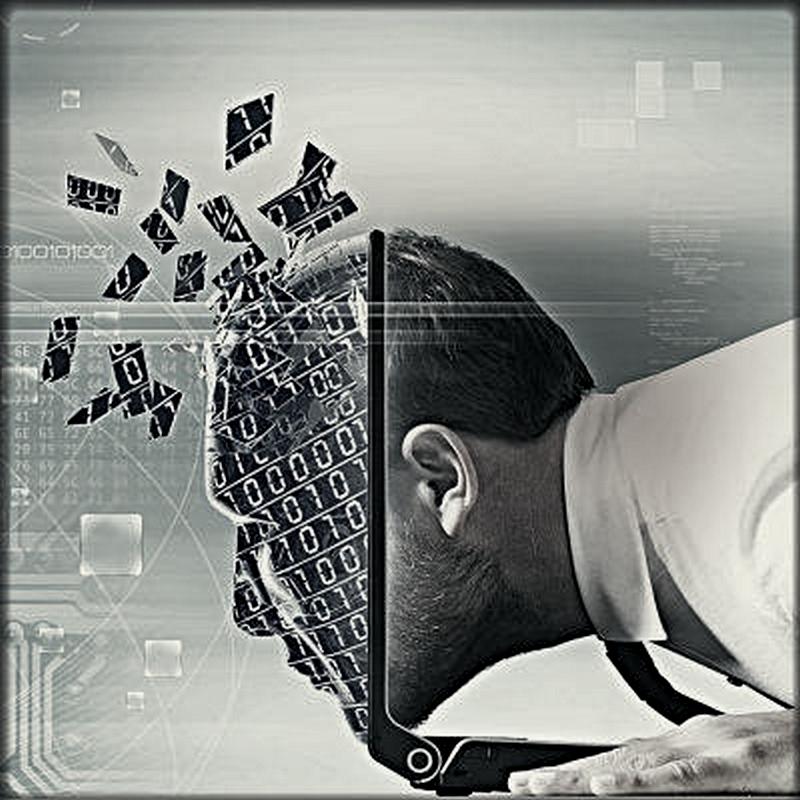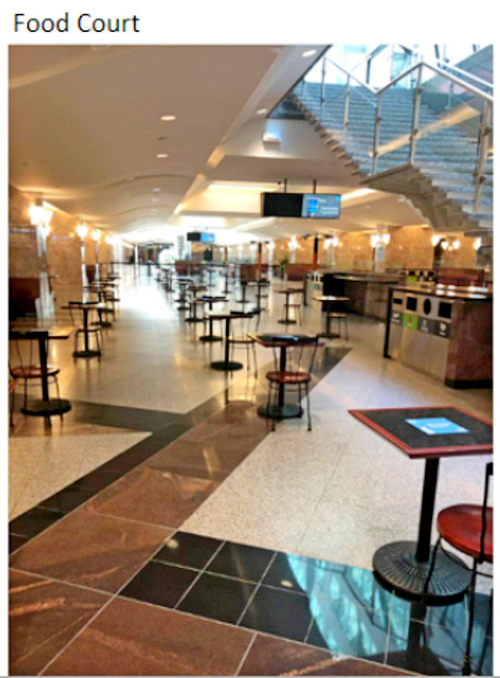ARE WE READY TO EMBRACE A NEW WORLD ORDER?

FORBES - |May 22, 2020,04:04pm
Are We Ready To Embrace A New World Order?
Hessie JonesContributor COGNITIVE WORLD Contributor Group AI Strategist, Advocating for Data Privacy, Decentralization, Human-centred #AI, fair & ethical distribution 4 all

As the Coronavirus outbreak plays out, we feel these effects locally and globally. Through these surreal times, we all have gotten closer and engaged in more direct ways, face to virtual face and less passive interactions with our devices. With our quarantined partners, we play more board games; we watch TV together; we spend more time in real-life conversation; and we eat together at the dinner table. In a world where we crave social connection, we continue to find ways to interact outside our environment despite our isolation.
We have greater empathy as the virus is here to stay, so we are compelled to change the way we think and the way we behave. For once, the world is in sync. Covid-19 has hit all of us – all cultures, all time zones, all walks of life. Immunity is a non sequitur. Collectively, we battle the Coronavirus – it is part of our daily life. We are at war with mother nature. Perhaps, she is giving us a lesson from nature, enabling us to rethink what we’ve known as truth, to change our ways and redesign how we live, work, interact with each other, and redefine access to our supply chain.
Growth in an Era of High Uncertainty
The Coronavirus has claimed its victims. The IMF predicts 2020 will “contract sharply” by -3%, much worse than the 2008-2009 Financial crisis. What this pandemic has revealed is an industry completely unprepared to manage the fallout. It has exposed many companies that are bloated and have more than enough staffing to do the tasks needed for companies to survive. North American companies have altered the working hours for employees (40%) or have frozen hiring (28%). We’ve witnessed a higher proportion of workers being laid off work (15%) or continue to work with reduced pay (17%). Economically we are unwell.
People working in the retail, travel, transportation and service sectors have been hit the hardest as consumption has curtailed. Economic growth is expected to rebound next year at 5.8% as “the economy normalizes” however the sustained impact will be felt as high unemployment numbers will ultimately determine this outcome. Graduating students with soaring loans will be vying for jobs along with those 20% of unemployed Americans. One hundred thousand small businesses in the US have permanently closed their doors in March; additionally, 4.2 million small businesses of the 30 million in the US have received emergency loans.
To put this into context, as of 2017, 47% of private sector employees worked in small business, a significant portion of the US workforce. Legacy stores like JCPenney, J. Crew, and Niemann Marcus have filed for bankruptcy. While travel has stalled in the near term, it is estimated that globally, this industry has experienced losses of $820 billion already. With these crippling stats, it’s difficult to envision a return to some semblance of normalcy in a year’s time.
AirBNB has recognized the travel model will be transformed as it has come to grips with its own losses. No longer will people travel at the same frequency and in the same way as before. Beyond disrupting how an industry must redefine travel to accommodate traveller safety, the shift towards more road trips, and more local destinations may become more appealing. Vacation will be redefined. Business travelers now have remote conferencing options to effectively conduct business.
Cities Prepare for a Social Distancing Existence

Deepfakes Are Going To Wreak Havoc On Society. We Are Not Prepared. The Best Sales Online Right Now And Through The Weekend. 600 Physicians Say Lockdowns Are A ‘Mass Casualty Incident’
As the lock down begins to lift, cities have begun to cordon off streets to accommodate the deluge of pedestrian traffic. As businesses start to reopen, we are seeing signs of new behaviors dictated by the redesign of our public spaces. In Toronto, Brookfield Place has reconfigured food courts to one-seat tables, and has limited the occupancy to each elevator.
Back to Work with No Fixed Address
Within business we have been witnessing digital transformation at an aggressive pace. Companies have been forced to react quickly to scale to meet the demands of a decentralized workforce.
Technical adoption curves that have traditionally taken months or years have accelerated up to days or weeks. As of late, OpenText, Facebook, Google, Shopify and Twitter are among a few big tech firms who are instituting longer-term or permanent remote work policies. Will cloud replace the traditional physical work address? According to Microsoft’s CEO, Satya Nadella,
“From remote teamwork and learning to sales and customer service to critical cloud infrastructure and security, we are working alongside customers every day to help them stay open for business in a world of remote everything..”

A recent Gallup survey revealed 60% of U.S. workers would prefer to work from home, post-pandemic. While this saves considerable commuting time and money, there will be economic impacts to the real-estate and transit industries. In addition, remote conferences have replaced business travel and while the once-previously-held presumption that face-to-face meetings achieves better results, the lock down has proven otherwise. The tech industry’s injection of this WFH (Work from home) mentality has also been the impending harbinger of dread. We save time and money, but we are also realizing the blurring lines between work and personal life, where most experience an extended workday and the ensuing stress. We also see the other side effects: the employer’s need to trust, or rather over communicate while instituting systems that provide evidence of work. So while we improve productivity, perhaps we also come to realize the grass may not always be greener.
A Workplace of Safety or Trust?
When the pandemic lifts, a flexible workday menu may include social distance policies, remote work options, split-shifts within 12 hour workday, disinfectant everywhere, disposable desk mats, stricter standards in office ventilation, reconfigured work spaces complete with sensors, wider gaps between stations and cell phone sensor apps designed to keep employees safe. The latter has considerable privacy implications but with Uber leveraging AI to track drivers’ use of face masks, and the TSA beginning to conduct temperature checks at the border, similar policies will become pervasive, at least in the near term – all in the name of public health.
Evolving into a dominant digital world means an increasing recognition for everyone to stay connected amid these new rules and policies as employers struggle to balance trust with workforce productivity. Limited access to employees immediately kickstarts the employer into a Big Brother mentality. This will make way for a new decentralized environment where output will outweigh input, where deliverables and performance will gain prominence. At the same time, companies that have been preaching they are agile will need to finally demonstrate whether they are truly ready and flexible to take on entirely new challenges and embrace new mindsets.
This mandated isolation has surfaced a trauma that has been coined “social recession”:
“We have evolved to be social creatures. For all the history of humanity, people have been in family structures, people have been in groups, we’re evolved to...crave and rely on that interaction with other human beings…So when we don’t have that it’s a huge void in the way that we go about being human. This is something that has been ...hard-wired into who we are as beings.”
What has materialized are higher incidences of loneliness, mental anxiety from the job or resulting joblessness. Diversity and Inclusion has been at the periphery of the future of work discussion but now, more than ever the principles that define this necessitate their incorporation into workforce policy and practices. Emotional intelligence, transparency, empathy and candor will be imperative to ease employees back into the workplace, to promote well-being and drive sustainability. As remote work and contract employment become familiar, can employers alter their environments that instill trust, engage employees, and cultivate a climate of commitment and productivity?
The New Consumption
Any time there is a crisis or disruption in our lives, we have always revisited our basic needs. In times of global war, or natural disasters where loss of lives have made the daily headlines, the stark realities have reduced our thoughts to establishing what we need versus what we want. Overall, we are buying less. This pandemic has created an end-of-world outlook that has seen citizens hoarding basic necessities to fill their bunker. We buy more food. We have the time to make better meals. We now take the time to renovate and fix the things that need fixing. We buy less clothes and instead opt for screen time to entertain us.

When the world opens up again, shopping will take on a different experience. Will we get used to plexi-glass everywhere we go? At the cashier station? Between our airline seats? Between the gym treadmills? Between restaurant tables? Will fancier and more personalized face masks be a new trend? Will we need to get used to being more than a yard-stick away from the nearest shopper? Will browsing be a thing of the past? Will we need to book time to shop in order to avoid the store line-ups?
For the retail and service industry, this will require a creative overhaul that creates new revenue opportunities to offset less traffic. The Sears Catalogue in-store model may become trendy again while pick/packers get the items people need. For companies that have fully embraced e-commerce they may never go back. The bricks-and-mortars model will become a test-bed for in-store lounges and coffee bars incorporated into the shopping experience.
There will also be a creation of new jobs, like local delivery services, which are experiencing an unprecedented surge in demand especially among the most vulnerable populations who have been sequestered. For the boomer generation, this may become a likely demand. Companies like Hello Fresh, Fresh City and Mama Earth are experiencing very unique IT challenges that are testing the limits of their systems and processes. The option to order from a menu of prepared meals that you can customize is gaining traction as people opt for fresher ingredients and healthier options within an industry that has all but shut down in the last month. The ability to revamp quickly to deliver product in an entirely new way is testimony to business will and innovation.
For transportation services, the demand for stronger ventilation services, and new configured seating arrangements will be needed as commuters will opt for safer options. Perhaps, car sharing or rental cars will be commonplace to avoid mass transit. The car-to-go personal rental services provide opportunities for individuals to monetize their idle vehicles, and compete with mass transit options.
For those hesitant to readily venture out, the rise of the on-demand service will begin to take shape: from in-home therapy, hair styling, manicures, and home care. Appointments by phone or by app will alleviate the need for storefronts, significantly reducing the barrier to entry as services are conveniently directed to the customer’s door.
The Virtual Classroom
Our children have been given a glimpse of their future and the future of education. It’s enabled much needed change for some time. According to WEForum:
“The slow pace of change in academic institutions globally is lamentable, with centuries-old, lecture-based approaches to teaching, entrenched institutional biases, and outmoded classrooms. However, COVID-19 has become a catalyst for educational institutions worldwide to search for innovative solutions in a relatively short period of time.”
Traditional classrooms and lecture halls will make way for remote education that will move towards more personalized learning. The inflated cost of higher education will eventually flatten and create increased opportunities for everyone. For elementary schools, asynchronous learning through Google Classroom or Blackboard will be augmented with more one-to-one instruction. Parents will play a much greater role in nurturing their children’s learning capacity. This new way of home life will creep into an already remote-working environment for parents. Much-needed peer socializing will require solutions.
The need to digitally advance the education sector will also widen the socioeconomic disparity. Access to data and devices will be the standard and will risk marginalizing the lower income populations. Further, in homes where parents must work, support and care for younger children may redefine daycare, and invoke further economic stress in the process.
We’ve seen partnerships begin to emerge among the telecommunications sector, the education system and technology industry to provide free wifi access to communities, subsidize technology access and provide support to lower-income households in an effort to minimize the risk of leaving anyone behind.
Healing the Planet
So, while we’ve been sequestered and have been forced to adapt to this new world, we’ve also given our planet some time to heal. Air pollution has been known to kill 200,000 people each year. With vehicles confined to garages, air quality around the world has improved. In March, researchers at Columbia University calculated carbon emissions in New York City fell by 50%. In India, carbon emissions fell for the “first time in four decades” by almost 30%. Maybe our suddenly clearer skies don’t have to be temporary. We are getting a taste of how much more livable our cities would be if we designed them for people, not as destinations.
The Coronavirus has forced all of us, in the few short months, into a massive reflection of our way of life and what we’ve taken for granted. It’s nudged us into territory we were bound to go eventually, and it's compelling all industries to finally embrace transformation. If the crash of 2008 sought to redefine the financial industry, this pandemic will be the catalyst to define how we live.
This post was written in collaboration with Karen Bennet, an expert on digital transformation and technology. She has multiple patents and is involved in several AI Ethics Working Groups within the IEEE/ISO. Karen is currently working on a book, Developers Survival Guide to AI/ML which maps out how to design, develop and deploy AI/ML applications. This book articulates a simplified and reliable process including tools to use for a successful AI/ML project.
COPYRIGHTS
Copy & Paste lenken øverst for Yandex oversettelse til Norsk.
WHO and WHAT is behind it all ? : >
VISIT THE PAPERTURN 20 OCT ARCHIVE
The bottom line is for the people to regain their original, moral principles, which have intentionally been watered out over the past generations by our press, TV, and other media owned by the Illuminati/Bilderberger Group, corrupting our morals by making misbehaviour acceptable to our society. Only in this way shall we conquer this oncoming wave of evil.
Commentary:
Administrator
HUMAN SYNTHESIS
All articles contained in Human-Synthesis are freely available and collected from the Internet. The interpretation of the contents is left to the readers and do not necessarily represent the views of the Administrator. Disclaimer: The contents of this article are of sole responsibility of the author(s). Human-Synthesis will not be responsible for any inaccurate or incorrect statement in this article. Human-Synthesis grants permission to cross-post original Human-Synthesis articles on community internet sites as long as the text & title are not modified.
The source and the author's copyright must be displayed. For publication of Human-Synthesis articles in print or other forms including commercial internet sites. Human-Synthesis contains copyrighted material the use of which has not always been specifically authorized by the copyright owner. We are making such material available to our readers under the provisions of "fair use" in an effort to advance a better understanding of political, economic and social issues. The material on this site is distributed without profit to those who have expressed a prior interest in receiving it for research and educational purposes. If you wish to use copyrighted material for purposes other than "fair use" you must request permission from the copyright owner.